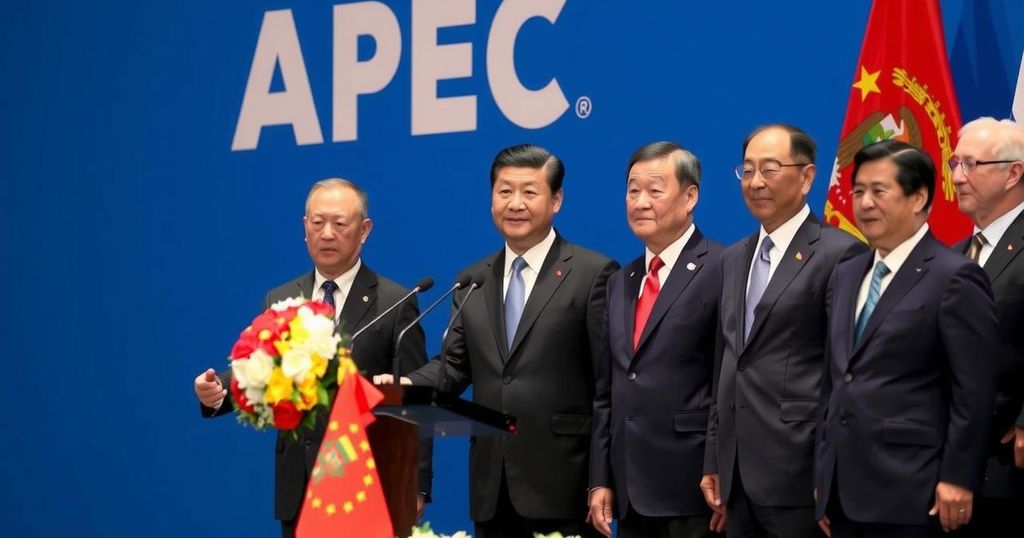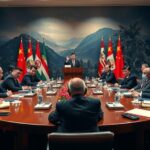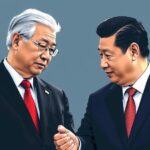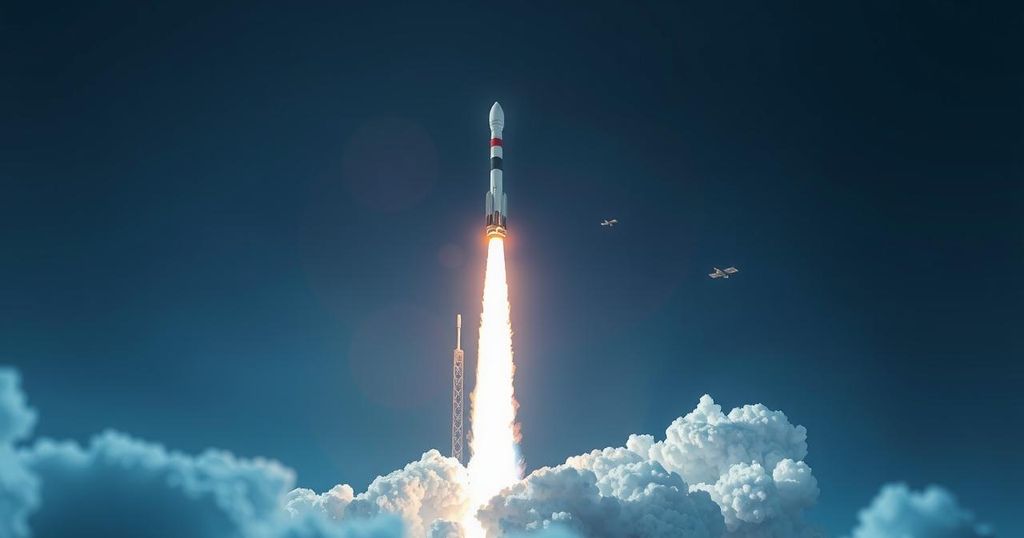Politics
AMERICA, AP, ASIA - PACIFIC ECONOMIC COOPERATION, ASSOCIATED PRESS, BIDEN, CORRUPTION, DEMOCRACY, DONALD TRUMP, INTERNATIONAL RELATIONS, JOE BIDEN, NORTH AMERICA, PACIFIC, PERU, SHI, SHIGERU ISHIBA, SOUTH AMERICA, TRADE RELATIONS, TRUMP WHIPLASH LOOMS, UNITED STATES, XI, XI FRONT AND CENTER, XI JINPING
Nia Simpson
APEC Summit in Peru Highlights Geopolitical Tensions Ahead of U.S. Leadership Change
The APEC summit in Lima concluded with leaders discussing economic engagement amidst U.S.-China trade tensions. President Xi of China championed globalization, contrasting with President Trump’s protectionist agenda. Biden’s presence was overshadowed by questions surrounding the future of U.S. leadership in global trade, marking a pivotal moment as he nears the end of his presidency.
The Asia-Pacific Economic Cooperation (APEC) forum concluded in Lima, Peru, marking a period of diplomatic significance amid shifting global trade dynamics. Over two days, leaders from 21 Pacific Rim economies convened to discuss economic engagement strategies, with discussions remaining largely superficial. The event was overshadowed by the impending leadership change in the United States, as President-elect Donald Trump has indicated intentions to withdraw from global trade leadership. President Xi Jinping of China emerged as a leading figure during the summit, promoting globalization and inaugurating a significant $1.3 billion port project in Peru, positioning himself centrally in APEC discussions. His presence emphasized China’s commitment to free trade, contrasting sharply with the protectionist sentiments expected from the incoming U.S. administration. President Joe Biden’s delayed arrival for the traditional APEC photo signaled unease and added political tension, highlighting the uncertain role the U.S. will play under a new administration. The final meeting between President Biden and President Xi served as a focal point for concerns over the escalating trade and security rivalry between the two nations. As President Biden concluded his tenure, the summit served not only as an economic forum but also as a poignant farewell to multilateralism from the U.S. perspective. The future engagements among these leaders may profoundly shape the economic landscape of the Asia-Pacific region in response to changing geopolitical currents.
The Asia-Pacific Economic Cooperation (APEC), founded in 1989, is a forum for 21 Pacific Rim countries that promotes free trade and economic cooperation throughout the Asia-Pacific region. This annual summit brings together leaders to discuss pressing economic issues and collaborative strategies to address them. The forum’s significance has grown in recent years due to intensifying competition between the U.S. and China regarding trade policies and economic influence. This year’s summit was particularly notable given the imminent transition in U.S. leadership, with President Donald Trump poised to reject existing global trade norms that have characterized U.S. policy in favor of a more protectionist approach.
In summary, the closure of the APEC summit in Peru highlighted the complexities surrounding global trade relationships, particularly between the U.S. and China. President Xi’s proactive stance on globalization juxtaposed with President Trump’s impending withdrawal from traditional trade leadership signals a potential shift in the balance of global economic power. As APEC participants reflected on the meeting, there remains uncertainty about future cooperation amidst rising protectionist trends, marking a critical moment for the Asia-Pacific economies.
Original Source: www.usnews.com








Post Comment